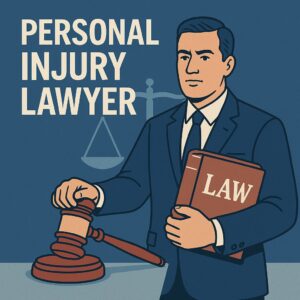In New Jersey, the path to recovery after an accident is rarely a smooth one. Sure, the doctor may sign off on your discharge, the physical therapist might wave goodbye, and you might even start driving again and resume your normal routine. But if you think your personal injury claim ends with your physical recovery, think again.
A personal injury story doesn’t end when medical treatment does. Instead, it marks the beginning of a more complicated chapter filled with paperwork, insurance adjusters, court dates, and long-term consequences that they did not see coming.
This article discusses why a personal injury claim in New Jersey does not always settle as neatly as expected, even after recovery.
Why Recovery Is Great But Not Enough
Consider being rear-ended on your way to work. Your back was out of alignment, and you spent weeks, maybe months, seeing a chiropractor and attending physical therapy sessions. Eventually, your pain recedes, and your provider says you have “reached maximum medical improvement.” That sounds like the end of the road for recovery, doesn’t it?
There’s only one problem: it’s not.
Medical improvement does not always mean you are back to where you were before the accident. Many victims in Pennsylvania discover that they are sometimes left with residual pain, limited mobility, or vulnerable to future injuries. That lower back strain might flare up every time snow falls. It might also mean you cannot lift your grandchild for a summer picnic.
This is why personal injury claims must consider future damages, not just what has already occurred at the moment.
The Financial Toll On Victims Post-Recovery
Time off after an injury can have ripple effects beyond missed paychecks. What if your injury prevents you from returning to employment or business full-time? In personal injury law, this is known as loss of earning capacity, and it is legally recoverable.
However, the catch is that insurance companies often try to close cases quickly, hoping injured parties will accept a low settlement before fully understanding the long-term financial impact of the incident. Accepting any settlement offered by insurance companies or the at-fault party too soon without first speaking with an attorney can bar you from seeking additional compensation down the road.
Emotional and Mental Recovery Are Separate Journeys
After a personal injury, mental and emotional traumas are not always visible as physical injuries. They certainly do not follow the same healing timeline as a fractured wrist.
The psychological effects of accidents, especially common ones like car crashes, dog bites, or traumatic falls, can persist for years. Nightmares, anxiety while driving, or even post-traumatic stress disorder (PTSD) are more common for victims than people realize, and are sometimes willing to admit. New Jersey law recognizes claims for pain and suffering, including emotional distress, but you need proper documentation to prove them.
Do not assume your claim is limited to what your orthopedist can or may not see on an X-ray. A licensed therapist or psychologist can provide essential evidence that may increase your case’s value.. Most importantly, a personal injury attorney can help you see beyond the now when preparing your case for compensation.
Conclusion
In the end, each individual’s healing process and timeline are unique. But in the legal world, recovery means more than walking without a limp or getting back to work after a while. It means ensuring you are not left to bear the physical, emotional, and financial costs of someone else’s negligence now or in the future.
So, when the cast comes off or therapy ends, remember that might be the end of your treatment. However, it is not necessarily the end of your claim. Speak to an attorney who knows the ins and outs of New Jersey personal injury law, because sometimes, the real recovery begins after the bandages are gone.
